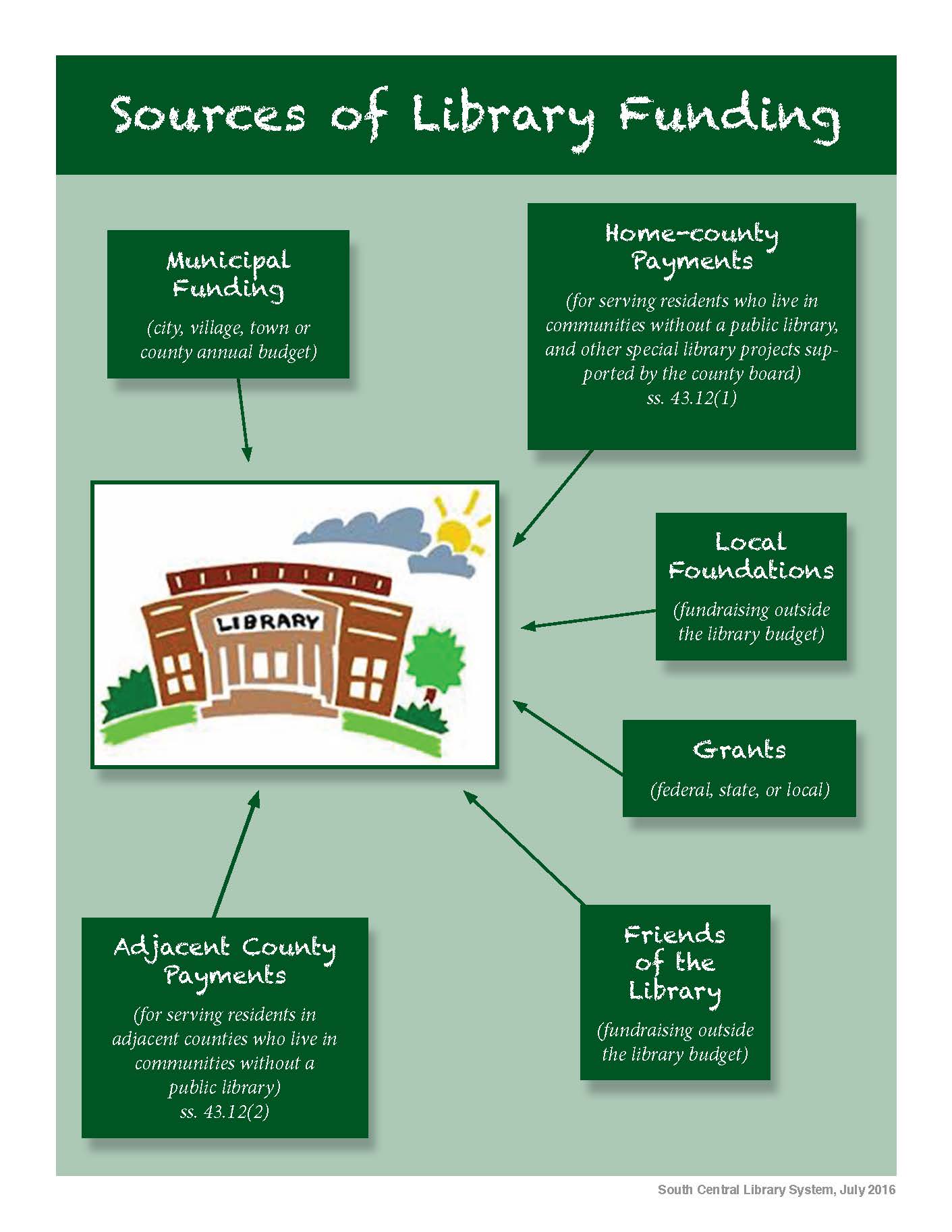Paying Library Bills: Who is Responsible for What?
Public Library budget development and the subsequent payment of bills for library expenditures is somewhat of a choreographed dance involving the municipal governing body (city council or village, town or county board) and the library board.
 As stated in Chapter 9 of Trustee Essentials—Managing the Libraries Money:
As stated in Chapter 9 of Trustee Essentials—Managing the Libraries Money:
“The library board has ultimate responsibility for all aspects of library financial management—from budgeting to spending to financial reporting. Your community will be much more willing to provide the resources necessary for high-quality library service when they know library finances are carefully controlled and monitored.
The board controls and monitors library finances by:
- Careful development and approval of the budget (see Trustee Essential #8: Developing the Library Budget).
- Review and approval of all library expenditures.
- Review and monitoring of monthly financial statements.
- Development of policies for the handling of gifts and donations.
- Accurate financial reporting.
- Careful attention to financial audits.”
Wisconsin Statutes give the municipal governing body full authority to determine the local library appropriation, but that same statutory language gives the library board exclusive control of the expenditure of all moneys collected, donated, or appropriate for the library fund. The board exercises this control through the approval of the budget, the establishment of financial policies, and the audit and approval of vouchers for all library expenditures.
Basic library financial procedures are as follows:
- The library board approves the annual budget and any budget adjustments necessary during the year. (See Trustee Essential #8: Developing the Library Budget)
- The library director is delegated authority to make purchases within the budget and according to board-approved purchasing policies.
- The library director is responsible for preparing vouchers for all expenditures, a monthly list of all library expenditures, and a monthly financial statement.
- At the monthly board meeting, the library board audits and approves payment of the expenditures, and reviews and approves the financial statement.
- The board secretary, or other designee of the board, signs the vouchers and they are forwarded to the municipal clerk for payment.
Once the municipal appropriation is approved, the only statutory reference to the municipality in the bill paying process is number 5 above. Bills approved for payment by the library board are forwarded to the municipal clerk for payment. The statute does not provide for any subsequent review and approval by the municipal governing body.
This view is supported in a League of Wisconsin Municipalities FAQ that addresses Chapter 43. The FAQ reads, in part:
Although the library board has exclusive control of the moneys appropriated for the library fund, the board does not make actual disbursements from the appropriation. Rather, the board audits and approves vouchers for expenditures and forwards these to the municipal clerk, who follows the ordinary procedure for disbursing municipal funds under sec. 66.0607 or 66.0609 if adopted.
Thus, under the scheme set out in the statutes, the library board has control over the use of the money appropriated to the fund, but it does not sign the checks or maintain physical control over the actual dollars and cents appropriated to the fund.
The statutory language is not intended to create a contentious relationship between the library board and municipal governing body, but rather to ensure that the public library is as free from political influence as possible so it can serve the needs of all community residents.
More information about this and other topics are readily available in Trustee Essentials: A Handbook for Wisconsin Public Library Trustees.
Library Funding Sources Explained
Questions arise frequently about funding sources for public libraries, and the South Central Library System has a one-page infographic that can be used as the basis of explanation.
 The primary source of funding for public libraries is the annual appropriation from the city, village, town or county that sponsors the library. When one of these political entities decides to have a public library, it accepts the primary responsibility for providing adequate funding to cover library operational expenses.
The primary source of funding for public libraries is the annual appropriation from the city, village, town or county that sponsors the library. When one of these political entities decides to have a public library, it accepts the primary responsibility for providing adequate funding to cover library operational expenses.
A secondary (and potentially significant) source of funding is from the library’s home county, which is reimbursement for serving residents who live in communities without a public library. Language explaining this financial relationship is found in 43.12(1) of State Statutes. There is a prescribed formula for this reimbursement that factors in total library expenditures (minus capital expenditures) and total circulation.
The third regular source of library funding is “adjacent county reimbursement,” through which libraries in one county receive reimbursement from adjacent counties for serving residents in those counties who live in communities without a public library. This formula uses the same factors as “home county” reimbursement, and more information about this requirement is found in 43.12(2). An explanation of home county and adjacent county reimbursement is too involved for this article, but you can see an example of the calculation used for both on the SCLS website.
Many public libraries have a “Friends of the Library” group of volunteers who work with the library director and library board to raise funds to support various library projects. These funds are raised outside of the library budget. In some cases, funds are donated to the library to make purchases, and in others the Friends group makes purchases directly on behalf of the library.
Finally, libraries may turn to local foundations for funding, or may elect to apply for local, state or federal grants to offset library costs. Most of the grants available will help offset costs like technology, collection purchases, or expenditures for library programs or projects. Some libraries also turn to nearby towns to make voluntary annual contributions to help support library use by their residents.
SCLS resources support library trustees
The job of the library trustee is everchanging, often responding to new and unexpected local issues that can challenge even the most experienced individuals. But the South Central Library System (SCLS) has resources available to help make the job of library trustee easier. To begin, check out the SCLS website (www.scls.info/management/trustees) for a host of resources developed just for trustees. Specifically, you can find easy access to:
- Trustee Essentials and other resources from the Division for Libraries and Technology,
- Trustee Training Week,
- Short Takes for Trustees, which is 10 short videos from United for Libraries address the job of a Trustee,
- Trustee Training Overview,
- Self-evaluation tools for trustees,
- Links to Chapter 43, Wisconsin Library Law, and
- SCLS fact sheets.
Be sure to bookmark this page and make it your first stop to find answers related to your position as a library trustee.
Save the Date for Legislative Day 2022
 There are many ways for library trustees to support public libraries, and one of the most effective is Library Legislative Day.
There are many ways for library trustees to support public libraries, and one of the most effective is Library Legislative Day.
After several years of disruption resulting from the COVID-19 pandemic, the Wisconsin Library Association (WLA) is moving ahead with plans for Library Legislative Day on Tuesday, Feb. 8, 2022, at the Concourse Hotel, One West Dayton St., Madison.
This is always an excellent opportunity to build relationships with state legislators and share with them stories and information about the important role your library plays in the community you serve. State legislators in turn approve the annual level of Public Library System Aid, which in turn is used by library systems to provide services and resources for public libraries.
Make plans now to attend Legislative Day 2022, and be sure to watch the WLA website for more information and updates about the day.
